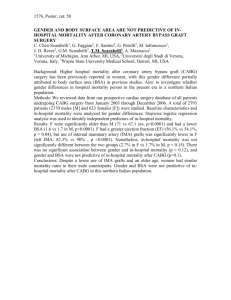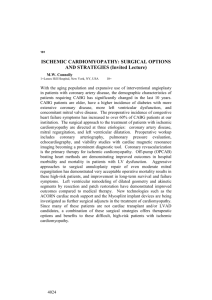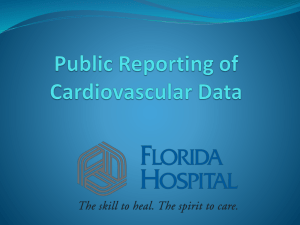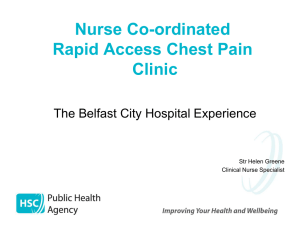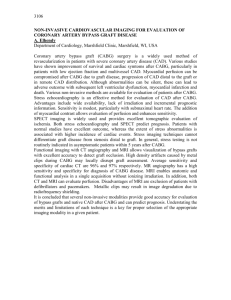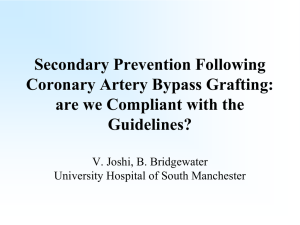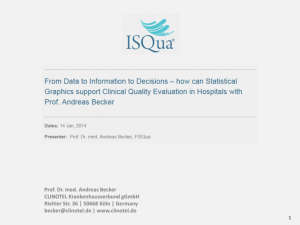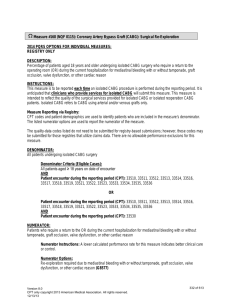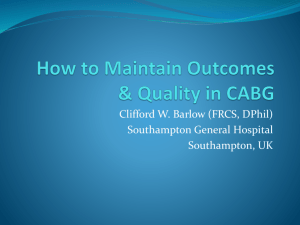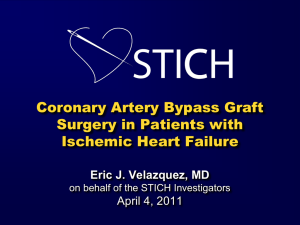lower trend in the nationwide in-hospital
advertisement
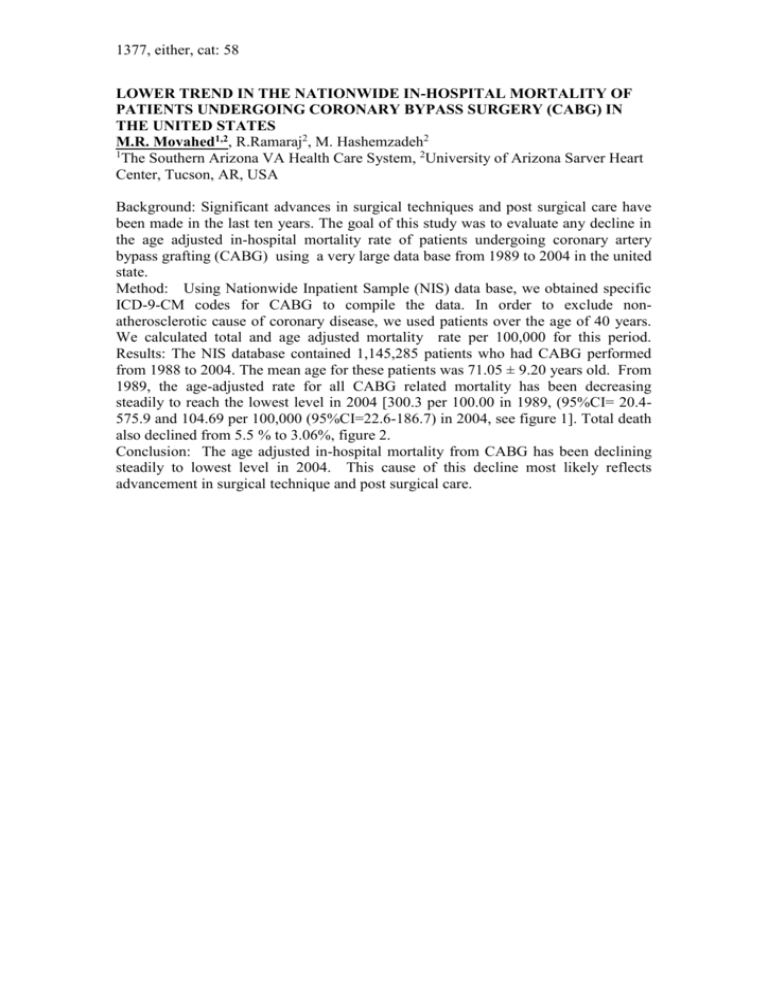
1377, either, cat: 58 LOWER TREND IN THE NATIONWIDE IN-HOSPITAL MORTALITY OF PATIENTS UNDERGOING CORONARY BYPASS SURGERY (CABG) IN THE UNITED STATES M.R. Movahed1,2, R.Ramaraj2, M. Hashemzadeh2 1 The Southern Arizona VA Health Care System, 2University of Arizona Sarver Heart Center, Tucson, AR, USA Background: Significant advances in surgical techniques and post surgical care have been made in the last ten years. The goal of this study was to evaluate any decline in the age adjusted in-hospital mortality rate of patients undergoing coronary artery bypass grafting (CABG) using a very large data base from 1989 to 2004 in the united state. Method: Using Nationwide Inpatient Sample (NIS) data base, we obtained specific ICD-9-CM codes for CABG to compile the data. In order to exclude nonatherosclerotic cause of coronary disease, we used patients over the age of 40 years. We calculated total and age adjusted mortality rate per 100,000 for this period. Results: The NIS database contained 1,145,285 patients who had CABG performed from 1988 to 2004. The mean age for these patients was 71.05 ± 9.20 years old. From 1989, the age-adjusted rate for all CABG related mortality has been decreasing steadily to reach the lowest level in 2004 [300.3 per 100.00 in 1989, (95%CI= 20.4575.9 and 104.69 per 100,000 (95%CI=22.6-186.7) in 2004, see figure 1]. Total death also declined from 5.5 % to 3.06%, figure 2. Conclusion: The age adjusted in-hospital mortality from CABG has been declining steadily to lowest level in 2004. This cause of this decline most likely reflects advancement in surgical technique and post surgical care.
